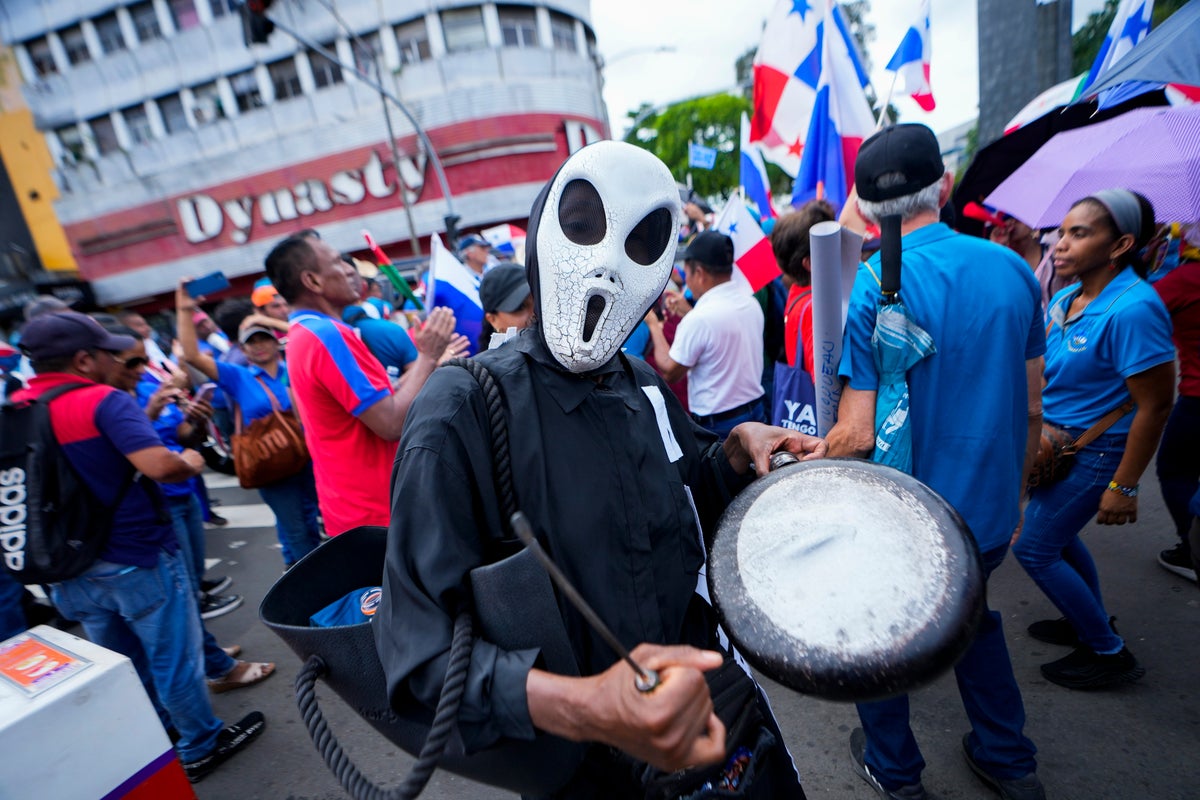
Protests extended into a second week Monday over a long-term copper mining concession for a Canadian company, as Panama's government sought to calm anger by promising to let Panamanians decide in a referendum whether to scrap the deal.
A broad cross-section of society has joined in demonstrations across the country for more than a week demanding the government rescind the contract with a local subsidiary of Canada’s First Quantum Minerals. Critics say the concession puts Panama’s environment and water supply at risk.
President Laurentino Cortizo’s administration proposed Monday to send congress a bill that would schedule a referendum in December. But the country's top electoral authority said such a vote couldn't be held before next May's presidential election.
Interior Minister Roger Tejado, who submitted the proposed legislation, called on electoral authorities to “carry out your historic role.”
The contract has real economic implications for the country. Panama Mining, the local subsidiary, employs more than 9,000 people, and the company says its operations accounted for 4.8% of Panama’s gross domestic product in 2021.
Cortizo’s administration says the new contract guarantees a minimum annual payment of $375 million to Panama, 10 times more than under the previous contract.
The new contract extends Panama Mining’s concession over 32,000 acres (12,955 hectares) for 20 years, with the company having an option to extend it for another 20 years.
The scale and scope of the deal have raised nationalist anger as well as environmentalist objections.
Critics say that at a time when drought has forced reductions in Panama Canal traffic, giving the company control over the water it uses is a mistake. The company says it uses only rainwater that it collects.
“We’re almost out of water,” protester Omayra Avendaño, a real estate broker, said during a march. “All the money in the world will not be able to make up for the lack of water, which is already critical.”
First Quantum Minerals has not commented since the protests began other than issuing a brief statement condemning protesters who arrived by boat at a port the company uses.







